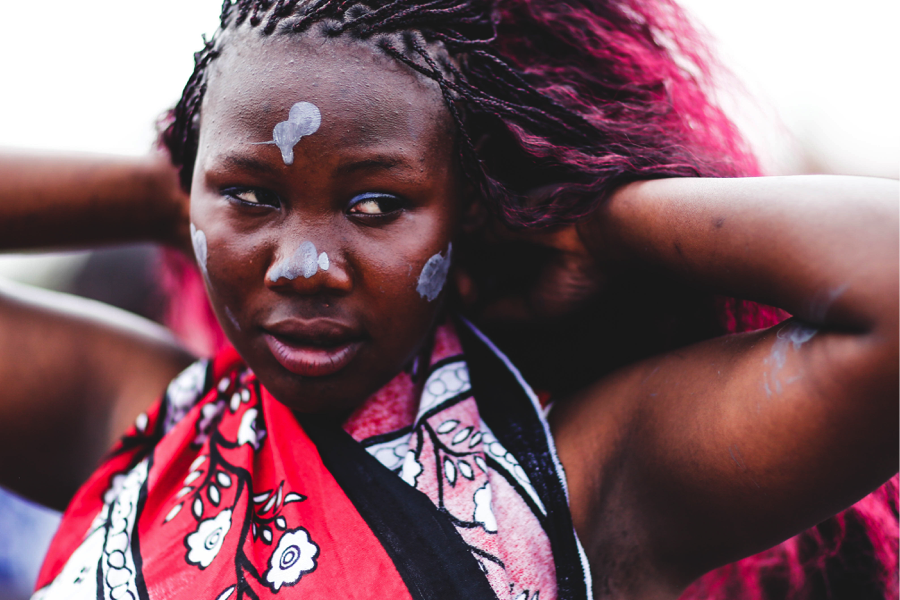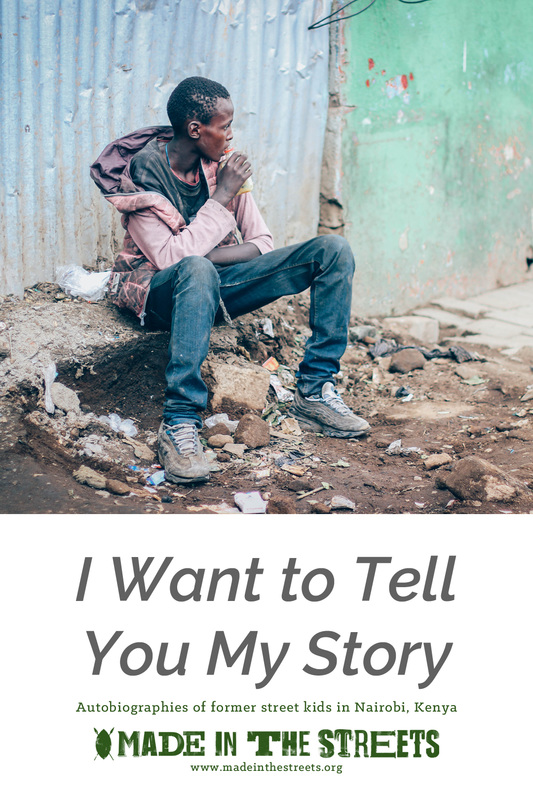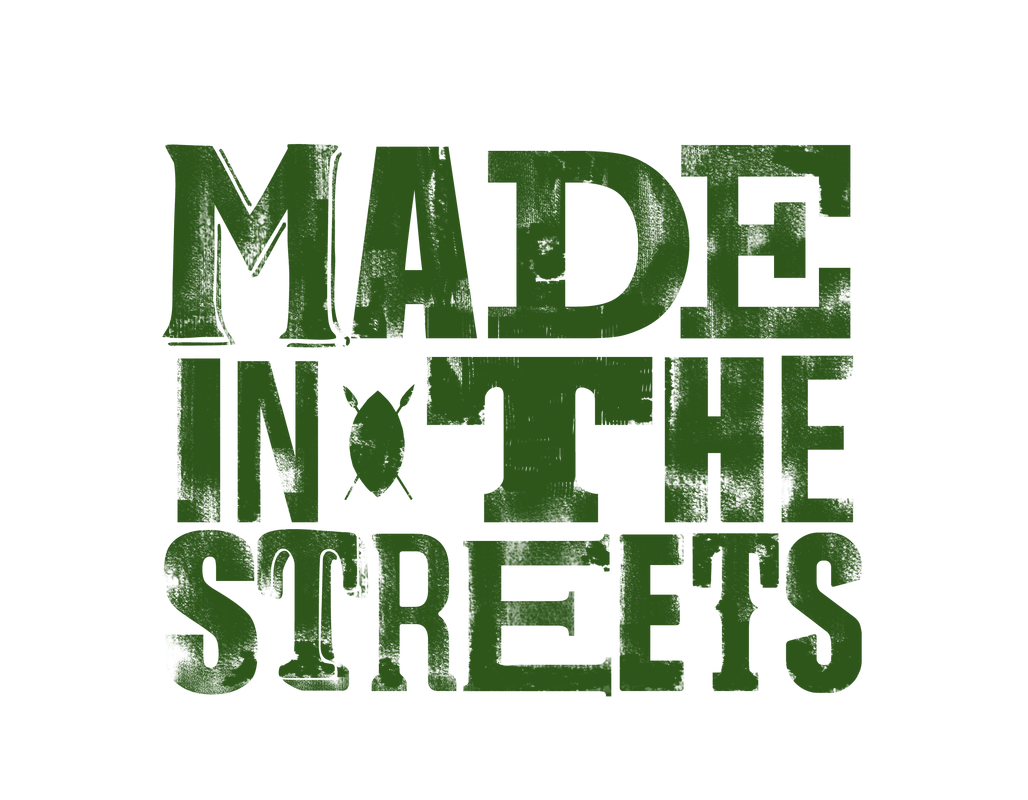|
Recorded October 2013 My name is Brenda Wasike. I am sixteen years old; my birthday is September 3. I have four sisters -- Mercy, Damaris, Ruth, and Faith. My three brothers are Collins, Jacob and Dan. They all live in the Lungalunga slums. I am from the Luhya tribe. My mother is called Metrine Wasike. She goes to the streets to look for scrap metal and plastics to sell to the recyclers. She uses the money to buy us food. My father does not have a job and so he stays at home. His name is Francis Wasike. He tries to get jobs but most of the time he is frustrated and complains that there are no jobs. When we were growing up, we were not well off, but my mother had a small business of selling roasted or boiled maize and ripe bananas. Life was good even though we struggled in some areas. After some time my brothers started going to the street bases to look for scrap metal and plastics. They would come back in the evening and bring some money to my mother. She would ask them if the money was stolen. She told them that she would not take any stolen money. My brothers told her that they had collected scrap metal from some dump trucks, sold them and brought the money home. The little money my mother got from her maize business was supplemented by what my brothers brought home. We were so glad that they were doing this because at least we had something to eat. With time, my brothers became full time street boys. They would spend the whole day at the dump heaps looking for scrap metal to sell; they would bring some money home. Then they would go and spend the rest of the day and night in the base. We were not happy with my brothers’ decision to move to the streets, but we could not do anything about it. We kept hoping that they would come back home and live with us. It was very shameful for anyone in your family to become a street child; it was the talk of the whole community. It was uncomfortable for us and for my mother to hear people talk. But we learned to ignore what they said. After some time my mother’s business started going down. Not many people bought her products. When the business failed completely, the only way my mother could make money was joining my brothers in collecting recyclables. My mother did not tell anyone what was going on but she left the house very early in the morning and spent the whole day in the garbage heaps and dustbins looking for recyclables to sell. She would come home late with some food. We were left in the house to take care of our younger siblings and my father. Due to lack of money for school fees, I had to drop out of Saint Elizabeth Primary School. I had gone up to class five. My mother really struggled to put food on the table. She worked very hard and always brought us something to eat. In the streets there were other women doing the same thing as she did. The women showed my mother the best spots for recyclables. Afterwards my sister Mercy and I started going to a base near our home called the “Quarry Base.” This was an abandoned quarry; the dump trucks were trying to fill it up with the trash they collected from different areas of the city. Mostly the trucks came in the evening and early in the morning. We would go and collect all types of food or any recyclables like clothes, tins and plastics. The truck drivers left the trash for us to look through as long as we promised to throw the things we did not need into big quarry pit. Sometimes we worked through the trash until it was too dark. Then the next day we had to wake up very early in the morning to push the other trash into the pit. Then we waited for the trucks to come again. So life went on at the trash pit. We would sell what we found to a man called “pastor”. A kilogram of plastics fetched us fifteen shillings. I would make from 300 to 1000 shillings in a day. (1000 shillings = $14). Sometimes we were forced to share this amount with older women who were in that base. We had no choice because failure to share would lead to being banned from the quarry. Some of the women told us that we should be in school and not working in the quarry. We knew that was true but our mother did not have money for school fees, or food either. We had to help by finding food for us to eat. My mother later joined us and she moved from Mtindwa Base to Quarry Base. She worked with us to collect the recyclables and we would go and sell them as a family. The presence of our mother in the base was an advantage to us because we did not have to share our money with anyone. In the base I learned that some things like cartons and aluminum fetched more money, so I had to rush for them first and keep them separate whenever I found them. I also learned to keep all the foodstuff I found in the trash. We would eat what we could; food that was not fit was still useful to sell to pig farmers in our village. Base life was a risky venture for me as a girl... Read the rest of Brenda's story, along with seven other student stories in our eBook, "I Want to Tell You my Story, vol. 1" which can be downloaded from the MITS store.
0 Comments
Leave a Reply. |
When you do this for 27 years, you're bound to pick up a few stories and lessons along the way. Thoughts, impressions, news, and highlights from our staff, visitors, donors, students and alumni.
Archives
March 2024
Categories
All
have you
|
MADE IN THE STREETS is a 501(c)3 nonprofit organization. Federal Tax ID #20-4044723
409 Franklin Road | Brentwood, TN 37027 | ©2023 MADE IN THE STREETS | site by cecily | PRIVACY POLICY
409 Franklin Road | Brentwood, TN 37027 | ©2023 MADE IN THE STREETS | site by cecily | PRIVACY POLICY




